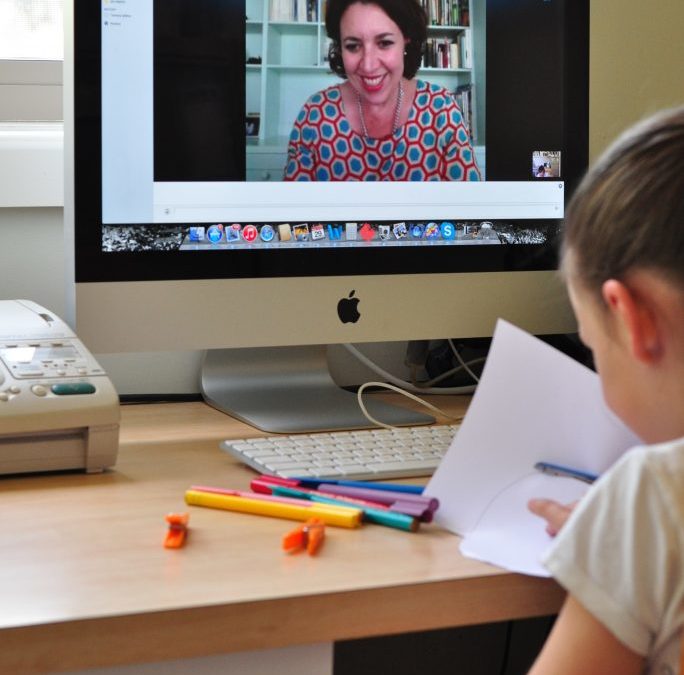If you are having difficulty distinguishing between a speech impediment and a speech impairment, you’re not alone! To distinguish between these terms, it’s important to understand the differences between them. A speech impediment usually involves difficulties producing sounds, such as stuttering or lisping, while a speech impairment refers to broader communication issues, including challenges with language skills. In this article, we will delve into how these terms differ and what they mean for individuals who face these challenges.
Key Takeaways
- Speech impediments are specific challenges in producing speech sounds, such as stuttering or articulation, while speech impairments encompass a wider range of communication issues and may involve language skills and effective communication problems.
- The identification of speech disorders is the first step toward intervention, with symptoms varying between adults and children, ranging from disrupted speech patterns to difficulties with expressive or receptive language, often addressed through speech therapy.
- While speech disorders can have various causes, personalised therapy at Therapy Connect can help you find your voice again.
What is the Difference Between Speech Impediment and Speech Impairment?
Though often used interchangeably in the context of speech disorders, the terms impediment and impairment denote different aspects of speech disorders. While a speech impediment typically refers to difficulties in producing sounds correctly, such as stuttering or articulation disorders, speech impairment may involve more comprehensive issues in language skills and effective communication.
The main divergence rests in each term’s scope: impediments usually pertain to speech production, whereas impairments pertain to a broader range of communication disorders.
Understanding Speech Impediments
Speech isn’t just about having something to say; it’s about precisely coordinating your mouth, jaw, tongue, and vocal cords to create understandable sounds. Sometimes, this coordination can be disrupted, leading to a speech impediment.
A speech impediment is a condition that makes it difficult to produce clear speech sounds. This can affect your speech’s fluency, rhythm, speed, and overall intelligibility.
Common Types of Speech Impediments
- Lisping:The “s” sound is produced with the tongue between the teeth, creating a whistling sound.
- Articulation Errors: This includes difficulty with “r”, “l”, or “s” sounds. These sounds can be omitted, replaced with other sounds, or produced incorrectly.
- Cluster reduction:Consonant clusters (like “str” or “bl”) might be simplified or omitted entirely.
- Dysarthria:This results in slurred or unclear speech due to weakness or incoordination in the muscles needed for speech.
- Apraxia of Speech:This is a neurological condition where the brain struggles to plan and coordinate the movements needed to produce speech sounds.
Speech impediments can sometimes be a sign of an underlying condition, but they can also occur on their own. Speech therapy is a very effective treatment for many speech impediments.
Speech Impairment: A Closer Look
Speech impairment is a general term for any difficulty with spoken communication. This can include problems with:
- Making sounds clearly:This could involve articulation disorders like lisping or difficulty with sounds like “r” or “th.”
- Controlling the flow of speech:Stuttering, where repetitions or blocks interrupt speech flow, is a common example.
- Voice quality: Issues like nasality, breathiness, or hoarseness can affect how your voice sounds.
- Language skills:Limited vocabulary or difficulty using grammar can hinder communication.
- Tongue-tie (ankyloglossia)
- Selective mutism
While some speech impairments like tongue-tie may sometimes be treated with surgery, most cases benefit from speech therapy. This broad range of conditions reflects the complex nature of speech impairments, emphasising the need for a comprehensive understanding and targeted interventions.
Signs and Symptoms of Communication Challenges In Children
Identifying speech disorders in children is crucial for effective intervention. Children may display different symptoms, such as stuttering, unclear speech production, phonological errors, or abnormal vocal qualities. However, timely speech therapy can improve communication and prevent behavioural and psychological issues that may arise from speech disorders.
What Are the Signs of Speech Impediments and Speech Impairments
Speech impediments can present themselves in different ways. Stuttering and other disfluency disorders can cause a child to repeat sounds or words or add extra sounds or words to their speech. Articulation disorders can result in consistent distortions or substitutions of sounds like “r,” “l,” or “s.” Speech sound disorders may also affect a child’s ability to produce speech sounds correctly.
Speech impediments can also cause voice disorders ranging from hoarseness to issues with nasal resonance, such as hypernasality or hyponasality. Physical manifestations like slurred speech, reduced movement of speech muscles, irregular speech volume, and tone could be.
Recognising Speech Impairments
Speech impediments and impairments can present in various ways, such as stuttering, disfluency, articulation, and speech sound disorders. These can cause voice disorders such as hoarseness or issues with nasal resonance, as well as physical manifestations like slurred speech and reduced movement of speech muscles.
In general, speech impairments can create significant obstacles to language and communication. Expressive language disorders can affect the use of words, thoughts, gestures, and questions and may be accompanied by challenges in understanding others. Specific speech impairment conditions include dysarthria, spasmodic dysphonia, and involuntary muscle contractions in the vocal cords.
What Are the Causes of Speech Challenges?
The origins of speech disorders are as diverse as their expressions. Speech disorders can be caused by genetic factors, brain trauma, physical irregularities, hearing loss, and vocal disorders. Conditions like cerebral palsy, cleft palate, acid reflux, noncancerous growths, and vocal overuse can all have an impact.
Genetic and Developmental Factors
Genetic components significantly influence the onset of speech disorders. Conditions such as articulation and phonological disorders often run in families. Moreover, speech impediments could indicate developmental delays, but they differ from a child’s speech, a normal developmental milestone monitored by healthcare providers.
Medical and Environmental Influences
Speech disorders can result from various factors, including brain injuries, hearing loss, and damage to muscles, nerves, and vocal structures. Nevertheless, recovery from speech difficulties following brain injury varies depending on the injury’s severity.
What Are the Treatment Options and Support for Children With Speech Disorders?
Speech disorders are unique to each individual and, therefore, require personalised treatment. The severity and cause of the condition will determine the type of treatment required. Good treatment and support will include the following:
Speech Therapy
Speech therapy involves various techniques and exercises to modify speech fluency and treat speech disorders. For children aged 4 to 6, exercises focus on introducing new words, explaining concepts such as opposites, and following multi-step directions. A speech pathologist helps with language development and social communication by teaching conversational skills, the use of humour, topic changes, and understanding non-literal language. Making progress in speech therapy can significantly boost an individual’s self-confidence and motivation.
Technology-Assisted Learning
Technology-assisted learning, such as Augmentative and Alternative Communication (AAC) devices, can benefit those with severe speech disorders alongside traditional speech therapy. Assistive communication devices aid those with speech impairments in expressing themselves and bridging the communication gap.
These devices enable individuals unable to achieve recognisable speech to communicate effectively, thus bridging the communication gap and facilitating interaction.
Finding Support and Resources
Navigating the journey of speech disorders can be challenging, not just for the affected individuals but also for their families. Having comprehensive support systems is crucial in such situations.
At Therapy Connect, we offer personalised therapies to provide a holistic approach to speech challenges. Some of the key benefits of our services include access to a team of experienced therapists, convenient online therapy sessions, individualised treatment plans, regular progress monitoring, and adjustments as needed. These benefits are highly valued by families seeking effective support for speech challenges.
Find Personalised Help and Support at Therapy Connect in Addressing Speech Challenges
At Therapy Connect, Australia’s leading NDIS online speech therapy provider, we help you confidently communicate and live your best life. With a team of highly qualified and experienced therapists, we offer comprehensive speech therapy services to support both verbal and non-verbal communication and swallowing issues.
Benefits of Choosing Therapy Connect
- Personalised Care: At Therapy Connect, we understand that everyone is unique. That’s why we offer personalised programs tailored to your specific needs and goals, ensuring you receive the most effective support.
- Unmatched Convenience:Enjoy flexible scheduling and eliminate travel hassles with our secure telehealth platform.
- Expertise at Your Fingertips: Gain access to some of Australia’s best speech therapists from the comfort of your home. Our experts are well-versed in online therapy and equipped with the knowledge and tools to support your journey.
- Nationwide Access: No matter where you are in Australia, our telehealth services break down geographical barriers, making professional therapy accessible to all.
- Engaging Therapy:Our sessions incorporate fun and interactive methods to make therapy enjoyable and effective.
- Empowerment for All:Our therapists can support children and adults with various speech and communication needs.
- Save Time and Money: Say goodbye to the hassle and expense of travelling for appointments. Our online platform provides a convenient and cost-effective solution for your therapy needs.
- Comprehensive Support: From improving communication and social skills to safe eating and drinking practices, Therapy Connect supports you in all aspects of speech therapy.
Don’t wait to start your journey towards improving your communication!
Contact Therapy Connect today and schedule a consultation to discuss your specific needs. Together, we can help you unlock your voice and reach your full potential.
Frequently Asked Questions
Is it speech impairment or speech impediment?
A speech impediment, or speech disorder, occurs when a child has difficulty speaking or being understood, affecting their learning ability.
What is the difference between a language impairment and a speech impairment?
A language impairment affects a person’s ability to comprehend and express thoughts, ideas, and feelings, while a speech impairment affects the person’s ability to produce sounds or speak fluently. Both can hinder effective communication.
Is impairment and impediment the same thing?
No, impairment refers to a deterioration or disability, while impediment refers to something that hinders progress. Both have different meanings and contexts.
What are some common types of speech impediments and impairments?
Some common types of speech impediments and impairments include stuttering, apraxia, dysarthria, articulation errors, and broader communication and physical symptoms related to speech production. These issues can encompass receptive language challenges and broader communication problems.
Final Thoughts
Understanding the differences between speech impediments and impairments is crucial in addressing individuals’ unique challenges with these conditions. Each step, from identification to treatment, is vital in managing speech disorders. Early intervention, comprehensive therapy approaches, and access to resources play a significant role in improving the quality of life for individuals with speech disorders.
At Therapy Connect, we have a team of highly qualified therapists and offer convenient telehealth services. If you want to take control of your communication, we invite you to schedule a consultation with Therapy Connect today. We will discuss your goals and explore how we can help you achieve them.




